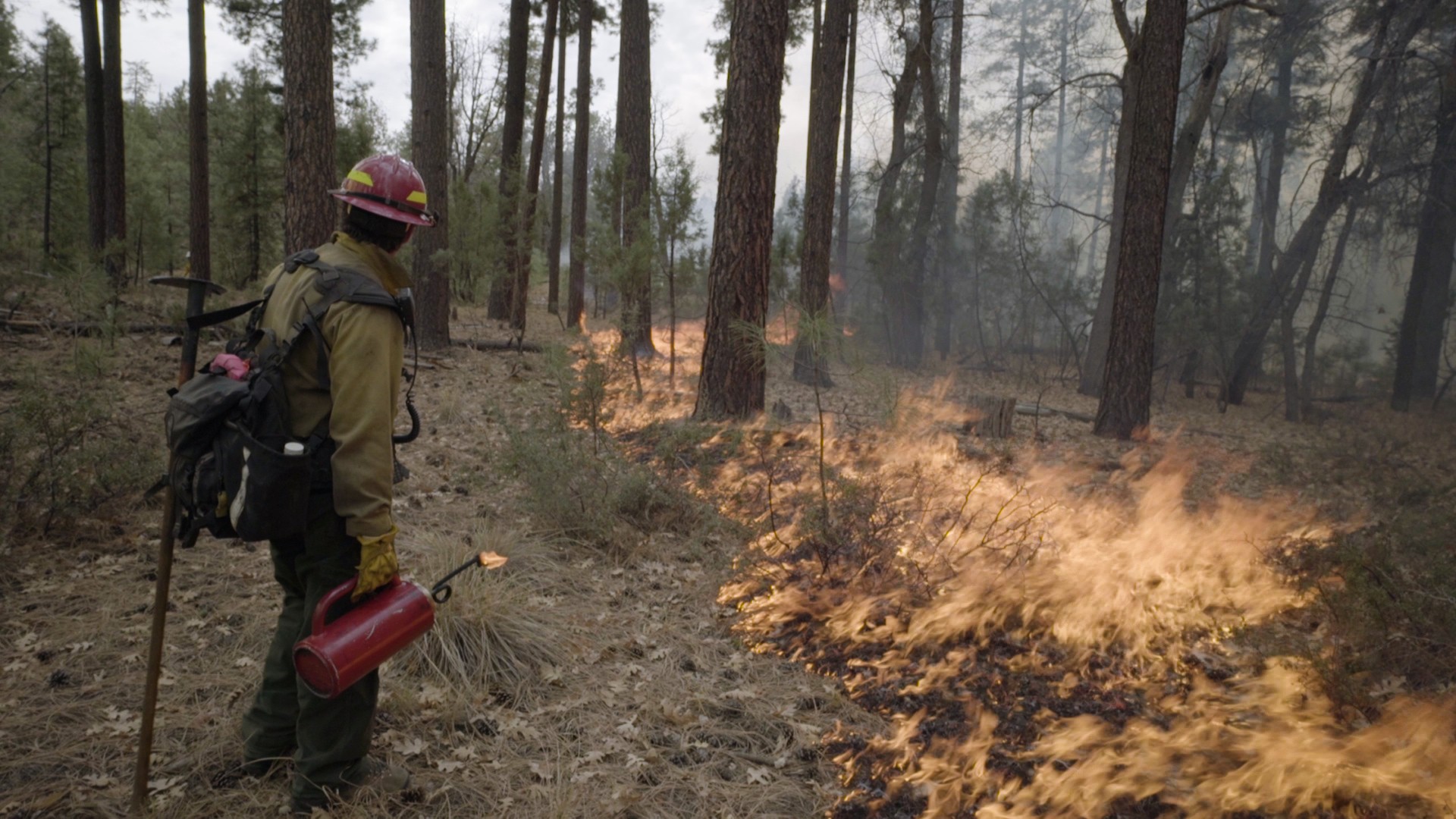Want the best of VICE News straight to your inbox? Sign up here.The Trump administration just declared open season on the biggest temperate rainforest in the world, which naturally stores about half the amount of carbon the U.S. releases every year. If that forest disappears, experts say, much of that carbon could wind up in the atmosphere and warm the planet.On Tuesday, the Forest Service revealed a plan that, if enacted next year, could let developers build roads and chop down trees in more than half of the Tongass National Forest in southeastern Alaska. The 17-million acre forest, which is bigger than the entire state of West Virginia, has been protected from development since 2001. It’s also remarkably biodiverse and home to robust populations of salmon, bears, moose, and deer.“Logging not only reduces the forest’s ability to store carbon and the number of trees, it disrupts the soil badly,” Brian Buma, an assistant professor who studies forest ecology at the University of Colorado Denver, told VICE News. “That can impact salmon streams.”The Tongass is particularly adept at keeping carbon out of the atmosphere because its plant life is so dense. The forest and all its biomass hold 3 gigatons — or 3 billion metric tons — of carbon, more than any other U.S. forest. In fact, that’s as much as all of the forests in Oregon and Northern California combined, according to Bev Law, a professor researching global climate change biology at Oregon State University.“Storing carbon in the forests is low-hanging fruit, just letting it stay there, because carbon in the forest is carbon that’s not in the atmosphere,” Law said.In his final days of office, President Bill Clinton enacted the “roadless rule,” which protects 58.5 million acres of land in the U.S. forest system across 38 states from development, including the Tongass. But in 2003, the Bush administration tried to unsuccessfully roll back the regulation through the courts.Taking cues from Alaska Republicans like Sen. Lisa Murkowski, the Trump administration has argued that logging will help the economy in sparsely populated southeastern Alaska, where most industries are losing jobs.“The roadless rule has hurt the timber industry, which now consists of just a handful of small, family-owned forest products companies. It also affects mining, transportation, energy and more,” Sen. Murkowski said in an op-ed for the Washington Post.But critics have noted that the logging industry in southeastern Alaska employs just under 1% of people in the region. Fisheries and tourism together provide a quarter of jobs in the region, and both industries depend on the Tongass remaining intact, according to an analysis from Southeast Conference, a regional business group.And environmental groups — including Earthjustice, a legal nonprofit that fought the Bush administration’s attempt to rollback the rule — have already vowed to fight.“The millions of ancient trees across this temperate rainforest serve as the greatest carbon sanctuary in the U.S. national forest system, helping us all as a counterweight against the climate crisis,” said Eric Jorgensen, a lawyer with Earthjustice. “There is no good reason to roll back protections for the Tongass.” Correction: A previous version of this story included a misattributed quote. It was Sen. Lisa Murkowski, not Sen. Dan Sullivan, who said that "roadless rule has hurt the timber industry."Cover image: Brown bear fishing for salmon in creek at Pavlof Harbor in Chatham Strait, Chichagof Island, Tongass National Forest, Alaska, USA. (Photo by Wolfgang Kaehler/LightRocket via Getty Images)
Correction: A previous version of this story included a misattributed quote. It was Sen. Lisa Murkowski, not Sen. Dan Sullivan, who said that "roadless rule has hurt the timber industry."Cover image: Brown bear fishing for salmon in creek at Pavlof Harbor in Chatham Strait, Chichagof Island, Tongass National Forest, Alaska, USA. (Photo by Wolfgang Kaehler/LightRocket via Getty Images)
Advertisement
Advertisement
